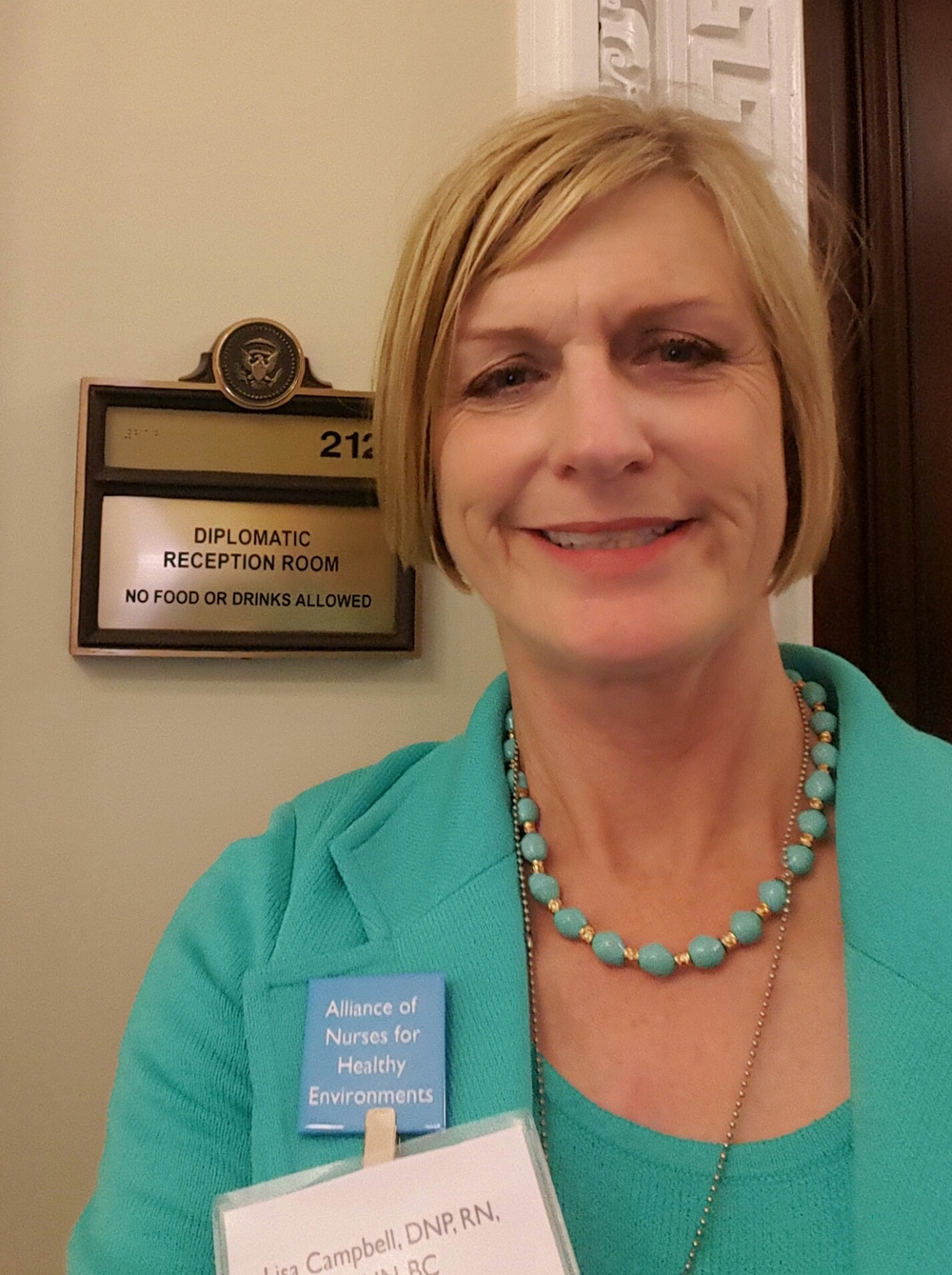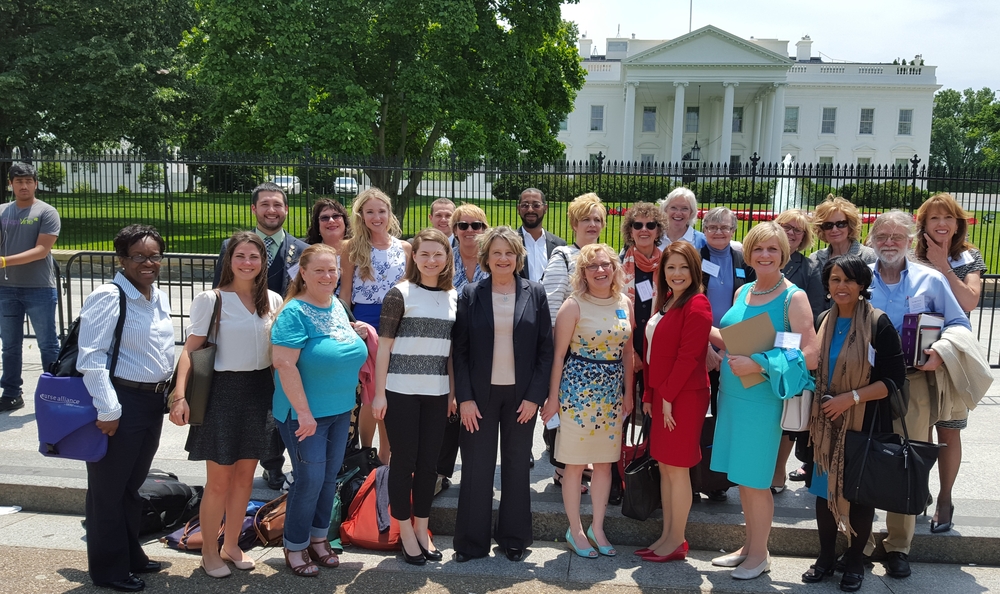Alliance of nurses for healthy environments, USA
Weather and vector-borne disease, like those spread by mosquito, occur in tempered climates along the southern coastal states of the United States. For populations at or below the federal poverty level, education and advice on how to avoid vector-borne diseases assistance with mosquito control and abatement is particularly important.
In 2016, Lisa Campbell, DNP, RN, APHN-BC, a board member of the Alliance of Nurses for Healthy Environments (AHNE) and part of Texas Team, the state’s Action Coalition, met with senior members of the Obama administration and federal agencies to address nursing’s contribution to mitigating the effects of climate changes, outlining actions for nurses in education, research, practice and policy.
Lisa has many years of experience as a public health director. For her addressing climate change has meant:
- Maintaining effective mitigation programs such as mosquito control
- Issuing health alerts and public education during extreme heat waves
- Working with emergency management to assess the community and develop plans to address flooding, hurricanes and other disasters
- Advocating for research on climate change and health
As the former director of a local public health department, Dr Campbell used the three core functions of public health: assessment, assurance, and policy development to guide her work on climate change. Weather and vector-borne disease, like those spread by mosquito, surveillance are particularly important in tempered climates along the southern coastal states, where Campbell and her staff monitored for cases of West Nile virus, dengue, and other emerging infectious disease such as Zika virus. Dr. Campbell assured a competent mosquito control programe with a staff that conducted health-related pest control to prevent the possible and/or probable transmission of vector-borne disease to or between humans. Through careful budgeting she ensured regular training, maintenance of equipment, and purchasing of appropriate pesticides. She and her staff worked with local and state agencies to develop Zika action plans, which included mosquito control on private property of a confirmed Zika case. Public health alerts during the hot rainy season was a key strategy to reduce vector-borne diseases. The public was advised through local media and the health department’s website of measures to avoid vector-borne diseases, such as staying indoors during dusk and dawn, dressing in long sleeves and long pants, applying insect repellent and draining standing water.
Health alerts paired with public education were also used during weather emergencies such as extreme heat waves. Alerts are important to prevent heat-related illnesses most especially in vulnerable populations, such as children, the elderly and those who are economically disadvantaged. Most vulnerable populations have limited or no air conditioning which increases their risk of health-related illness. The team worked with local media to disseminate information and local agencies to provide fans and cooling shelters for the economically disadvantages. All programmes to address weather related public health issues were anchored in the public health department and partner organisations.
Dr Campbell worked with the Office of Emergency Management to assess functional capabilities, determine community assets, and develop plans to address flooding, hurricanes and other disasters. Inhabitants of low lying areas were mapped for evacuation. Partnering with local and state organisations mass care was established through memorandums of understanding.
References
USGCRP, 2016: The Impacts of Climate Change on Human Health in the United States: A Scientific Assessment. Crimmins, A., J. Balbus, J.L. Gamble, C.B. Beard, J.E. Bell, D. Dodgen, R.J. Eisen, N. Fann, M.D. Hawkins, S.C. Herring, L. Jantarasami, D.M. Mills, S. Saha, M.C. Sarofim, J. Trtanj, and L. Ziska, Eds. U.S. Global Change Research Program, Washington, DC, 312 pp. http://dx.doi.org/10.7930/J0R49NQX



